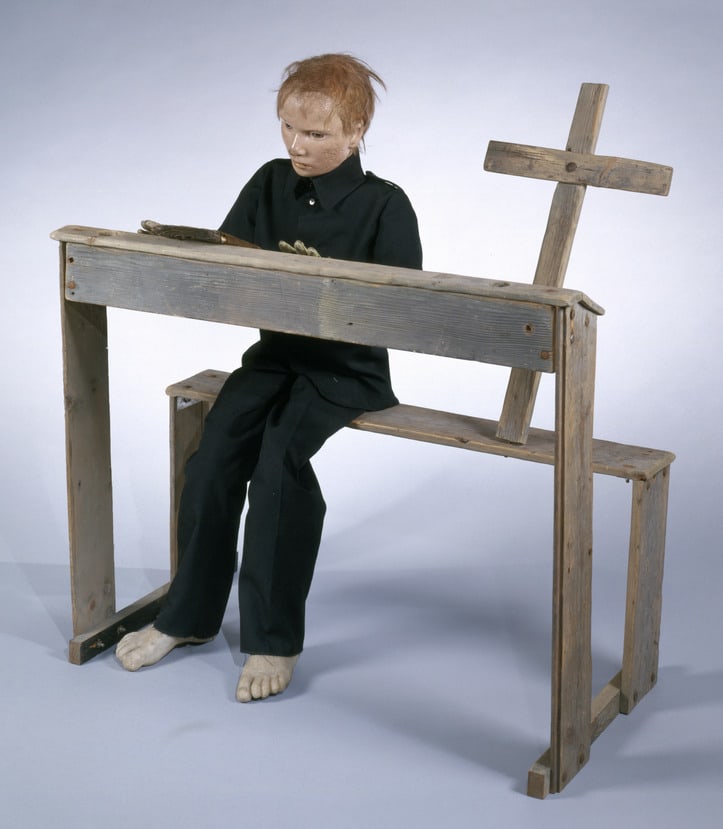
- Artist/Maker:
- Tadeusz Kantor
- Bio:
- Polish, 1915-1990
- Title:
- Boy at a Desk from "The Dead Class"
- Date:
- early 1980s
- Medium:
- Wooden desk, mannequin, and mixed media
- Dimensions:
- 42 × 38 × 25 in. (106.7 × 96.5 × 63.5 cm)
- Credit Line:
- Purchase: Fine Arts Acquisitions Committee Fund
- Accession Number:
- 2005-47a-c
Not On View
Connected with numerous avant-garde movements including Informel painting, Conceptual Art, Fluxus, and Happenings, Tadeusz Kantor was first and foremost a theatrical impresario. The Desk is a sculpture related to his theatrical masterpiece, The Dead Class (1975). In this harrowing performance, live actors carried effigies of their younger selves, an evocation of the tragic history Kantor lived through during World War II. Kantor proclaimed in his Theaters of Death an existential despair in the face of political conflict and senseless annihilation.
Born in Wielopole in eastern Poland, a town with a sizable Jewish community, Kantor kept his Jewish roots purposefully ambiguous. Yet his work from the very beginning was founded on remembrance of the “Jewish, amputated part of Polish culture.” For an artist who grew up between the omnipresent Catholic Church and the Jewish cemetery of his hometown, the Cross and the ghost-like figure of the body of a young boy are universal symbols of death, martyrdom, and loss.
Born in Wielopole in eastern Poland, a town with a sizable Jewish community, Kantor kept his Jewish roots purposefully ambiguous. Yet his work from the very beginning was founded on remembrance of the “Jewish, amputated part of Polish culture.” For an artist who grew up between the omnipresent Catholic Church and the Jewish cemetery of his hometown, the Cross and the ghost-like figure of the body of a young boy are universal symbols of death, martyrdom, and loss.
Information may change as a result of ongoing research.